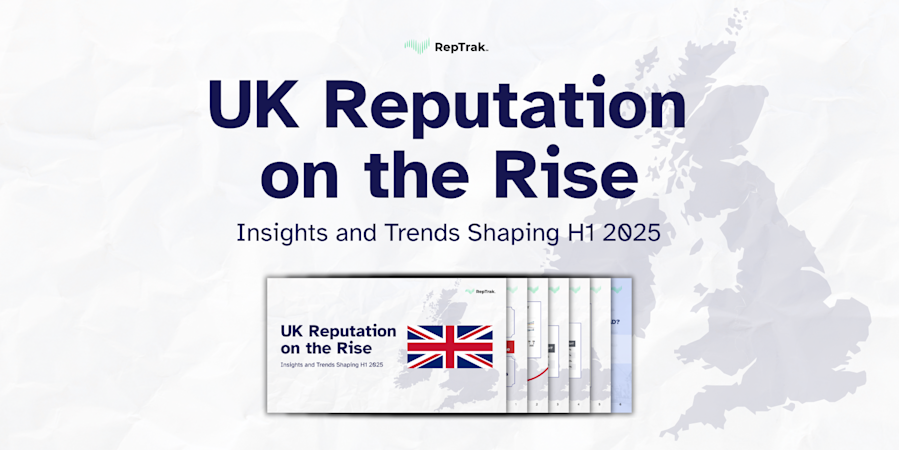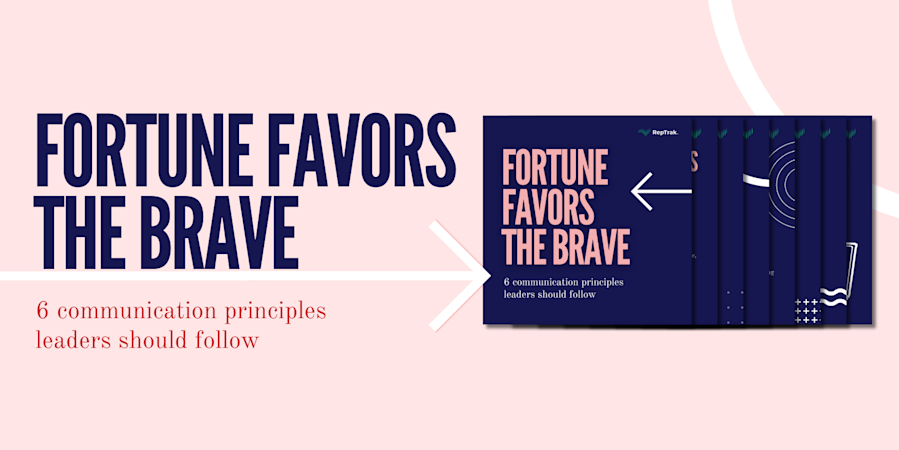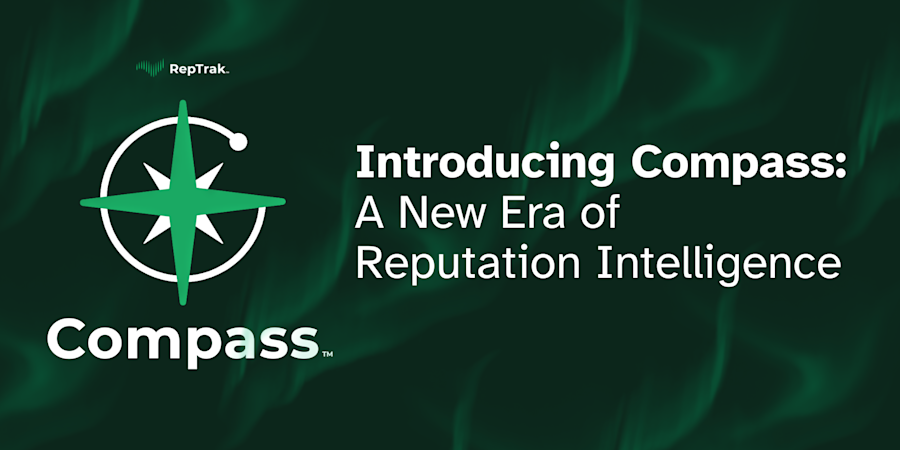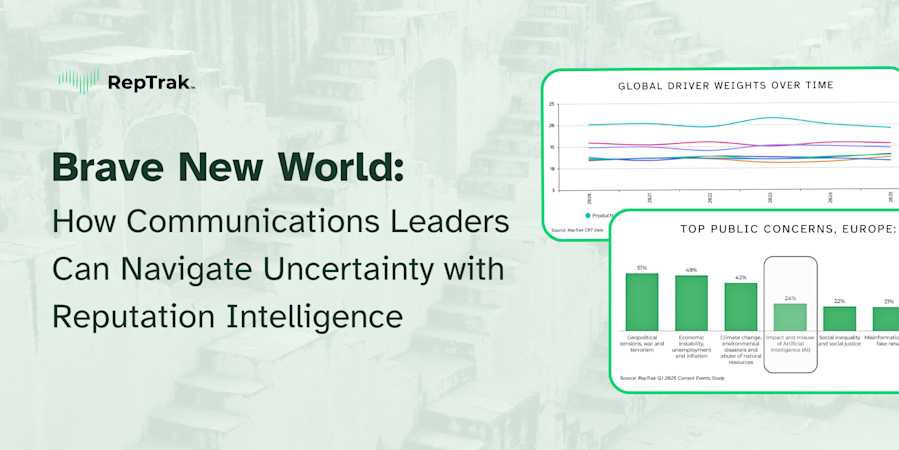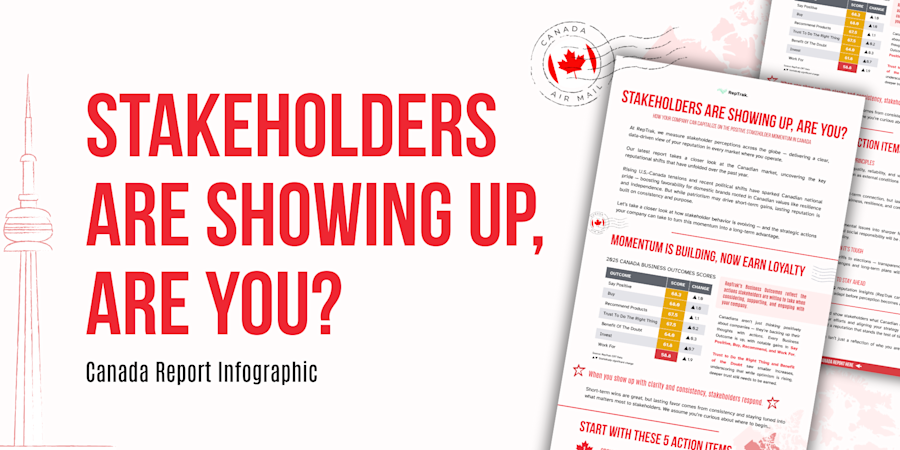U.S. Consumers Question Strength of Public Health System in the Wake of COVID-19 Crisis
Crisis Communications26 Mar, 2020
While the earliest signs of COVID-19 in the United States were spotted at the end of January 2020, the number of new cases announced every day in late March is creating an upward curve that has the nation in a state of alarm. Today, 12.6% of all confirmed cases in the world are concentrated in the U.S., according to the World Health Organization.
By now, nearly all representatives of the public and private sectors have publicly reacted to the situation. U.S. lawmakers have agreed on a monumental relief package and corporations have offered a wide range of aid as non-essential businesses are forced to shut down indefinitely in different states.
Between March 13 and March 15, the early days of the crisis, we surveyed 384 respondents across the country to gauge their perceptions of this initial response by the public and private sectors. Results at this stage help us understand the mindset of American consumers, and will be used as a benchmark as the situation continues to evolve in the coming weeks.
What did we find?
Even at an early stage, the public questions the boundaries of the United States’ healthcare system. 56% of survey respondents believe the COVID-19 crisis demonstrates the need for a national public health system and 44% worry that their access to healthcare will be impacted by the crisis.
The technology industry appears to be the most resilient in the eyes of the general public. Only 27% of respondents believe it is at risk during the crisis, compared to 78% who believe airlines are most in trouble.
Companies will be judged by how they treat their employees. 59% of respondents agree that workforce disruptions like layoffs, as well as how companies treat those who need to take sick leave, could impact their long-term reputation.
The U.S. general public is reluctant to assume the personal implications of COVID-19. While 72% of respondents consider the U.S. economy to be at risk, only 39% thought COVID-19 would affect their daily habits at this early stage of the pandemic.
From our data, we have developed seven key takeaways.
1. The U.S. public health system and large businesses can help deal with the crisis—but they should do so separately
The U.S. general public seems to believe that the public and private sectors can each contribute to resolving the COVID-19 crisis. That said, Americans think they should work independently. A majority of respondents believe that the current situation demonstrates the need for a national public health system (56%) and that large businesses have a responsibility to take action (51%). However, only 39% strongly believe that public-private partnerships are the most effective way of addressing the crisis.
2. Local governments receive more praise than companies and the Federal government do
Public organizations are more top of mind than companies are in terms of crisis response. When survey participants were asked to name companies, organizations, or corporations that had either impressive or disappointing responses to COVID-19, a larger proportion of unprompted responses alluded exclusively to the public sector. Local and state government, and other public institutions—including school districts and the Center for Disease Control (CDC)—were frequently mentioned among the organizations that impressed Americans. Walmart, Target, the NBA, AT&T, Walgreens, CVS, and Amazon were among the companies cited as having responded well to the crisis.
On the other hand, the Trump administration, the White House, and the U.S. Federal government were more frequently mentioned among top organizations that disappointed Americans with their response during the early stages of COVID-19. It’s worth watching whether the Federal government’s relief package will provide companies and individuals with the resources they need to stay healthy and financially solvent.
3. A company’s actions as an employer will be the most important
How companies maintain the well-being of their employees during the crisis might have a permanent impact on how consumers view them long-term. In fact, 59% of survey respondents believe that a company’s response to workforce disruptions could impact its long-term reputation. Overall, a recurring theme in this early U.S. data—which is consistent with early results from Italy—is the importance of corporations as responsible employers. Though respondents predict that the crisis will have damaging effects on the economy, they are still looking at corporate employers as a source of guidance, education, and additional resources. 61% believe corporations should be providing additional healthcare and benefits during the COVID-19 crisis.
According to a study published in Progressive Grocer in May 2019, Walmart had 2,200,000 full-time employees in the U.S., along with 347,000 employees that do not qualify for sick leave. In our own recent data, Walmart was among the most polarizing brands in the early stage of the crisis: When consumers were asked to name companies whose initial response to COVID-19 impressed them, Walmart topped the list. It also was number one for those asked to name a company whose response disappointed them. We believe Walmart’s position as the country's largest national employer places it at the spotlight during the crisis, given the enhanced importance of corporations acting like caring employers in the eyes of the general public. Recent decisions by Walmart to hire 150,000 workers to meet the demand for supplies caused by the COVID-19 crisis, and pay them higher salaries, should help that perception.
4. While discounts are nice to have, consumers want businesses to be educators
In times of uncertainty, consumers strongly believe that companies should be a source of information for their employees (71%), their distributors (67%), and the communities in which they operate (66%). They also believe that companies should communicate to customers about the disease and its implication, although to a slightly lesser degree (64%). Providing discounts to customers during the COVID-19 crisis is considerably less of a priority—only 44% believe companies should be doing this, compared to a majority that believe corporations should contribute to the education of their key stakeholders.
At the early stage of the crisis, consumers were still willing to receive information from corporations. We will have to see if this changes, as most companies have already reached out to their communities through email messages.
5. The tech industry is viewed as the most resilient
Respondents believed that hospitality, transportation, and, especially, airlines would be among the industries most likely to experience disruptions the longer COVID-19 affects global markets, and this has proven true so far. However, less than 30% of respondents to our survey believe that technology companies will experience the same level of reputation risk during the crisis. In fact, Americans and citizens around the world are using online shopping, videoconferencing, social media, and other technology platforms and tools more than ever to stay connected and work remotely. Technology and telecom firms are also in a position to provide tangible benefits to consumers, such as free digital connectivity and bandwidth.
6. Health is a concern, but not one shared by the majority yet
Our data confirms that the global COVID-19 pandemic is making Americans feel nervous about their physical and mental health. 44% of survey respondents say they believe this crisis will jeopardize their access to healthcare and coverage, and 43% are worried about their food security. Physical and mental health is also a key concern, with 43% of respondents claiming that they worry about their well-being. While this may not be a concern shared by the majority at this point, we can expect this sentiment to increase as the scale of the pandemic increases.
7. While economic impacts are easy to imagine, there is a reluctance to practice “social distancing”
American respondents were quick to predict the big-picture impact of COVID-19 on the global and local economy. More than 70% believe the economy is at risk as a result of this global pandemic. However, at an early stage of this crisis, only 39% considered it likely that their own daily habits would change in this same context. Our survey was conducted before shelter-at-home recommendations and other major travel constraints were imposed across the country, and there seemed to be a disconnect between how people viewed COVID-19 would impact the economy versus how it would impact their daily lives. In fact, 40% of respondents did not have strong dispositions to stop attending public events and practice “social distancing,” and reduce personal travel plans.
Summary
At the early stages of the crisis, American consumers were quick to envision the economic impact of COVID-19, moderately concerned about the impact it may have on their health and food supply, and less willing to assume the implications on their personal life. While the public sector is top of mind in terms of who is reacting appropriately or inappropriately to the crisis, a majority of respondents also believe corporations play a big role. Support in the form of discounts is viewed positively, yet the priority for consumers seems to be for employers to be active educators and protectors of their employees.
At this time, the data is capturing a level of scrutiny of our healthcare system and on how the Federal government has reacted to the problem. In our next round of research, we will see how this has played out as the situation continues to evolve.
Ivan Rocabado Senior Vice President, North America The RepTrak Company


